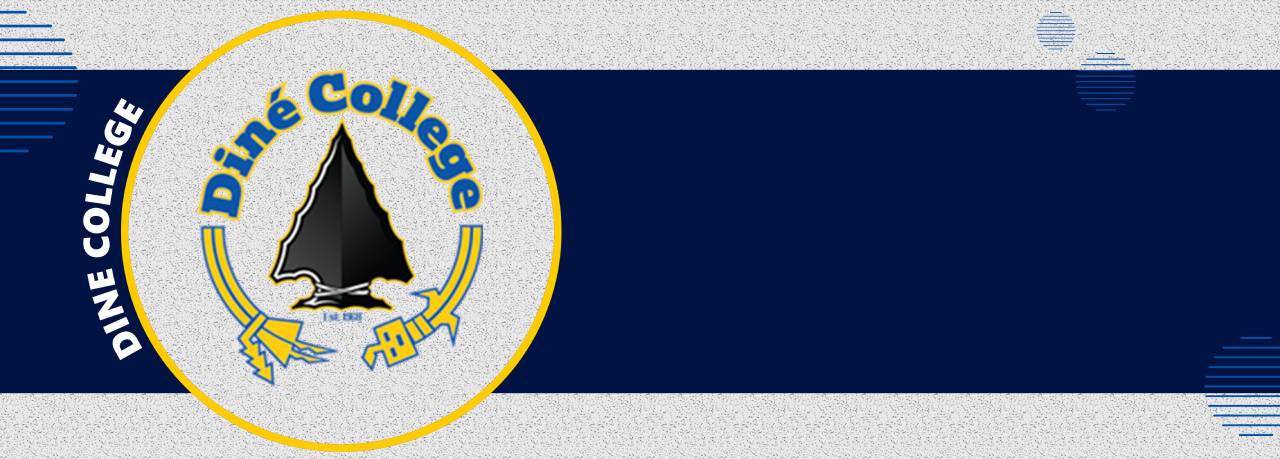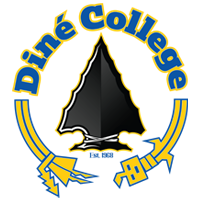
Diné College Center for Excellence in Teaching and Learning
1 Circle Dr.
Route 12
Tsaile, AZ 86556
Location Map
(928) 724-6600

Resource Highlight: Teaching and Learning Resource Library
Our teaching and learning resources organized, searchable, and easy to save and adapt.
Achieve the Dream – Teaching and Learning
Diné College ATD Goals: (updated 1/3/21)
- Goal #1: Teaching and Learning:
The commitment to engaging full-time and adjunct faculty in examinations of pedagogy, meaningful professional development, and a central role for them as change agents within the institution. Also, the college’s commitment to advising, tutoring, and out-of-classroom supports as well as restructuring development education to facilitate student learning and success. (5 strategies, 20 key tasks, 8 complete, 40%) - Goal #2: Strategy and Planning:
The alignment of the institution with the umbrella goal of student success and the institution’s process for translating the desired future into defined goals and objectives and executing the actions to achieve them. (4 strategies, 8 tasks, 3 completed, 38%) - Goal #3: Policies and Practice:
The institutional policies and practices that impact student success and the processes for examining and aligning policies and practices to remove barriers and foster student completion. (4 strategies, 8 tasks, 3 completed, 38%)
Individual consultations provide support, guidance, assistance, mentoring and coaching to faculty on a 1:1 basis. All consultations are strictly confidential and must be initiated by the individual faculty member. Once a consultation is initiated, the director will meet with the faculty to discuss the issues at hand and develop a plan. All reports will be written directly to the faculty member.
Assistance and support could include issues such as:
- Developing your syllabus
- Developing your assignments
- Creating rubrics or marking schemes
- Enhancing active learning and innovations in the classroom
- Classroom observations with feedback
- Managing student behavior issues
- Program and curriculum development
- Supporting the tenure process
- Time management
- Any other area
If you would like to meet 1:1 in person, by phone, or by email, please email.
If a chair or dean is concerned about a faculty member, they are encouraged to suggest to the faculty member that they may want to seek some support. The role of the director is to provide support and feedback to faculty, not to evaluate them.
A department or committee may seek support. Please contact the director directly to discuss the situation at Phone Number or (Email contact link).
- Revising course evaluations
- Revisiting peer reviews
- New program development
- Curriculum design
- Managing student behavior issues
- Program and curriculum development
- Supporting the tenure process
- Time management
- Any other area
Library Resources
Course Reserves
Faculty may place materials on reserve for student use at the Help Desk. Materials may be items owned by the Diné College Libraries or personal copies. Students can then check out reserve items for in-library use. Loan periods are typically 2 hours. All photocopied materials must meet the requirements of U.S. Copyright law.
For Copyright Guidelines: https://lib.dinecollege.edu/faculty_support
Library Instruction
The Diné College Libraries is committed to teaching and reinforcing information literacy skills in our campus communities. To schedule a library instruction session for your class, please fill out the Library Instruction Request Form. A Librarian scheduled to teach your class will contact you as soon as possible to confirm instruction details. Please note:
- Please give notification of requests at least two weeks in advance.
- Instructors MUST attend instruction sessions.
- Please align sessions with existing assignments or research tasks.
Online Resources
Syllabus Resources
The syllabus is a contract with your students, but also sets the tone for the class and prepares students for the learning environment. Along with providing the class’s “ground rules,” can you also use the syllabus to provide clarity to a course, and even get them excited about what lies ahead? These resources not only provide the basics and requirements, but also ideas for how to make the syllabus engaging as a document and also to continually engage students with the syllabus.
Syllabus Basics
- Syllabus Writing Checklist (4/2018) [pdf]
- Blended/Online Course Syllabus [pdf]. Includes more focus on technology equipment, access, and expectations, along with other aspects included in the main syllabus template.
- Example Syllabus, ECO 111 [pdf]
- Example Syllabus, PSY 499 [pdf]
Resources for Syllabus
Useful information for updating course schedules and including required information.
- Important Dates (holidays, recess, exam periods)
- Course Catalog
General Education
Learning Outcomes
Getting Students to Use the Syllabus
These strategies keep students accountable to reading the syllabus, understand its most significant points, and connecting individual units to the “larger picture” of the course learning outcomes.
- Five Ideas for Seeing the Syllabus with Fresh Eyes
- How to Know They Read the Syllabus: Quiz Questions and Beyond
- How to Prevent Dogs (and Computers) from Eating Student Work
- Syllabus with Accessibility in Mind
- Engaging Syllabus Design
- ADA Discussion and Syllabus Statement
- Syllabus: Active Reading from Day 1
- Syllabus Scavenger Hunt
- Using Your Syllabus for Learning
Other Syllabus Considerations
- Accessible Syllabus – Brief, research-based ideas on how to use images, text, rhetoric, and policy in a way that best creates an inclusive learning environment.
- ADA Discussion and Syllabus Statement
- Textbook Affordability and
Weekly Teaching Tip Series
In workshops, conferences, and teaching and learning faculty development, we often take away a small teaching tip that helps us better facilitate group work, engage more students in discussions, and motivate students to be prepared for class. We would like to offer that “Aha!” moment more often with our Weekly Teaching Tips.
Every week we will send out a new teaching tip in a brief infographic you can read and implement that same week. From there you can access this page, which will offer the full content of each teaching tip.
Teaching Tips come from DC faculty and staff, plus some contributions from the Teaching Issues Writing Consortium (2013-2017) compiled by faculty developers beyond DC.
Submit a Teaching Tip
Only the text for this strategy is needed, which normally includes a brief description and purpose, step-by-step directions, outcomes, and references (see teaching tips below as a guide).
Teaching tips are written for faculty, and learning tips are written for students. Share these brief sheets with students to bolster their study, collaboration, and reading skills. Share an idea for a learning tip.
Recent Teaching Tips
Zoom Support
Zoom How-To’s
Video Recordings
Faculty can find videos that have been created throughout each semester to review on their own time.
Spring 2022
Topic: Faculty FERPA and the Dept. of Education
Video: View Video
Topic: Title IX Training for Faculty and Staff
Video: View Video
Access Passcode: FfgWP4Z@
Topic: Writing Letters of Recommendations for Students
Video: View Video
Get Help
Submit IT Ticket
Facility Request
If any individual wants to request a room or space you must use the facility request form.
For more Zoom information and support contact:
Timothy Skidmore, Diné College Academic Technologist
tskidmore@dinecollege.edu
(928) 724-6980
